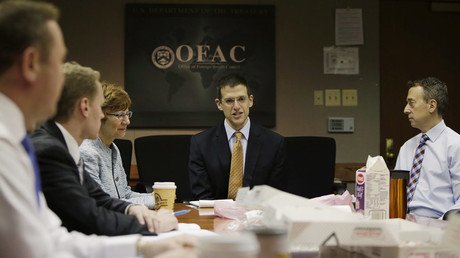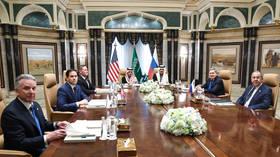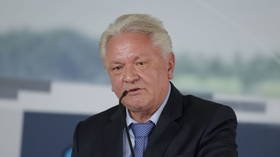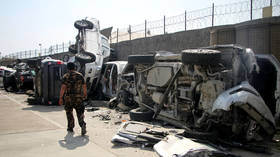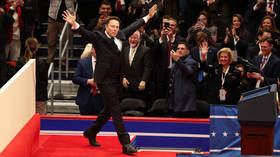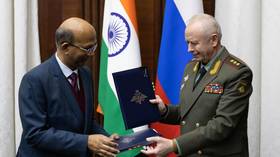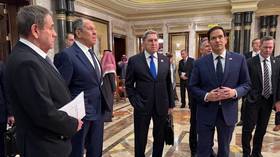BBC hypothetical on Russian invasion: ‘Psychological warfare’
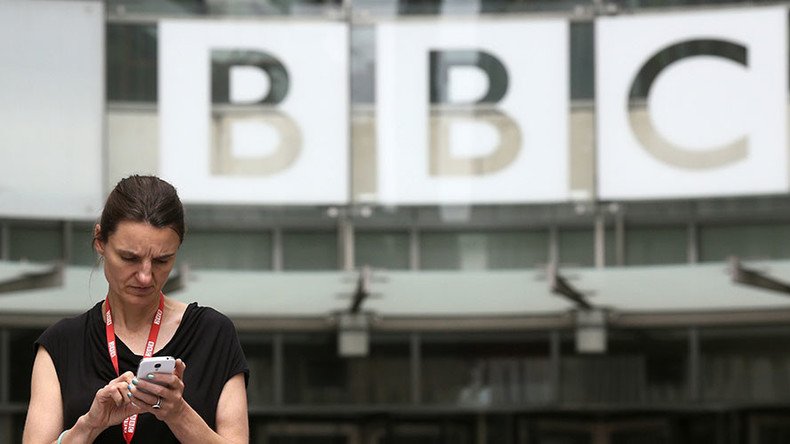
A BBC program about a hypothetical WWIII scenario is psychological warfare: it attracts an audience by representing Russia as a “bad boy” and a threat to the world peace similar to the Soviet era, says British historian and Russia analyst, Martin McCauley.
Russia invading Latvia and then launching a nuclear strike on the British military. That's the fictitious vision of the future in a new show from the BBC.
RT: The BBC is a respected outlet. Are they following impartial programming or following a bigger narrative that covers fiction and non-fiction?
Martin McCauley: You can put it down as a psychological warfare. Back in the days of the Soviet Union the Soviet Union was seen as a “bad boy”, the threat to Western security. Now, Russia in fact is now playing that role. ..
RT: The BBC is doing it. Isn’t it supposed to be impartial?
MM: That depends on your point of view. Because some people would say BBC is not biased, other people would say it has an agenda and it is following that agenda. If you look at the BBC news, it reports negatively - as do most channels - on Russia. There’s hardly ever a positive story. I cannot remember. In fact I really don’t watch the BBC news anymore because you don’t really rely on for direct interest-free points of view. I look for other channels to find the news, to read the newspapers, then I make up my own mind.
RT: What about the British public. Are they buying this perceived Russian threat?
MM: Yes, because that is called psychological warfare. And the way you influence people is by repetition, keep on saying the same thing. If you represent Russia as a “bad boy” and President Putin as an ogre, the one who just threatens the world peace, gradually people will accept that. And the most important audience is in fact the young audience. Because people in their teens are growing up; if they accept this narrative, then it’s internalized and it is very difficult in the future afterwards to change it. And I saw this when I was teaching Soviet politics and Soviet history. A narrative which was in fact very anti-Soviet changed under Gorbachev… There have been periods when the reporting on Russia and the Soviet Union was positive but under Boris Yeltsin, he was treated as a joke, Russia was in fact a basket case, nobody took it seriously. And comes Vladimir Putin, then for the first five years he was seen as a “good guy” and then he is seen as a “bad guy” because he is challenging the West, he is saying no longer Russia is not down and out, Russia is a sovereign state, it is going to defend its own interests. And many people in the West don’t like this because they want to see Russia as a very weak state. And this narrative now is creeping back in and is going to the genes of the British population.
RT: The film is called “World War Three: Inside the War Room”. Isn’t this a docudrama? Are people in Britain going to see through this?
MM: In fact, war games are played by all militaries around the world. And if you don’t play military games it is about time to start doing this because you have to say it yourself: if country A invades us or country B, what do we do? So, that’s for the war game. An interesting thing about the BBC program which I think would have a very wide viewing by the population because people like the war games, people like thrillers. It becomes a thriller if you like, it becomes like James Bond. You go into the situation room and you say: “Ok, we have a threat. What do we do? Do we use nuclear weapons? Do we know how to react to this?” And the public just loves that because in many ways it is fiction. If you look at thrillers, if you look at David Baldacci thrillers, look at James Bond – people love that. They are bestsellers. And this type of game is in fact riveting because you say to yourself: “I would like to be there and if I was sitting in his position what would I do? Would I press the nuclear button? And when do you press the nuclear button?” And everybody gets a little frisson because it could end a world. And people like that. And the BBC has to attract the audience... And this is one of the ways to do it.
The statements, views and opinions expressed in this column are solely those of the author and do not necessarily represent those of RT.
